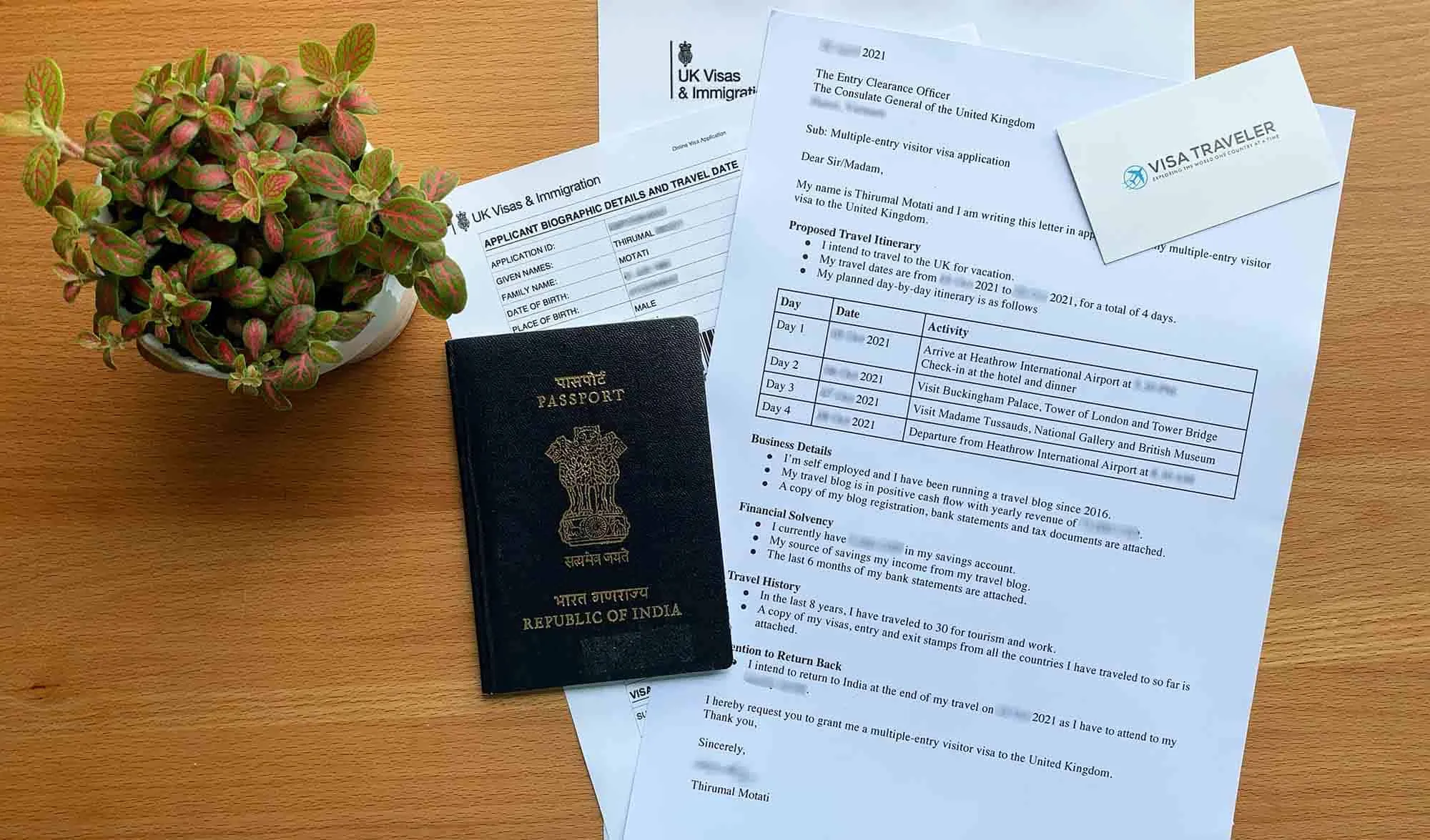What is a UK Visa Application Cover Letter
A cover letter for a UK visa application is a crucial document that accompanies your official visa application form and supporting documents. It serves as a personal introduction to the UK Visas and Immigration (UKVI) officer reviewing your application. Unlike the standard application form, the cover letter allows you to provide context, explain your intentions, and offer additional details that might not be captured elsewhere. It’s your chance to make a strong first impression and present your case in a clear, concise, and compelling manner. Think of it as your opportunity to advocate for your application and persuade the officer that you meet all the requirements for the visa you are applying for. A well-written cover letter can significantly increase your chances of a successful visa application.
Why Is a Cover Letter Important for a UK Visa Application
The importance of a cover letter in a UK visa application cannot be overstated. First and foremost, it allows you to personalize your application and provide a narrative that complements the official documentation. Standard forms often lack the space to explain unique circumstances or provide crucial context. A cover letter fills this gap. Secondly, it gives you the opportunity to address any potential concerns or red flags that the visa officer might have. By proactively explaining any complexities in your situation – for example, gaps in employment or previous visa refusals – you can demonstrate transparency and honesty. A well-crafted cover letter showcases your genuine intentions, helps the visa officer understand your purpose for visiting the UK, and strengthens your overall application. It can also help highlight the strong aspects of your case, making it easier for the officer to make a positive decision.
Key Components of a Strong Cover Letter
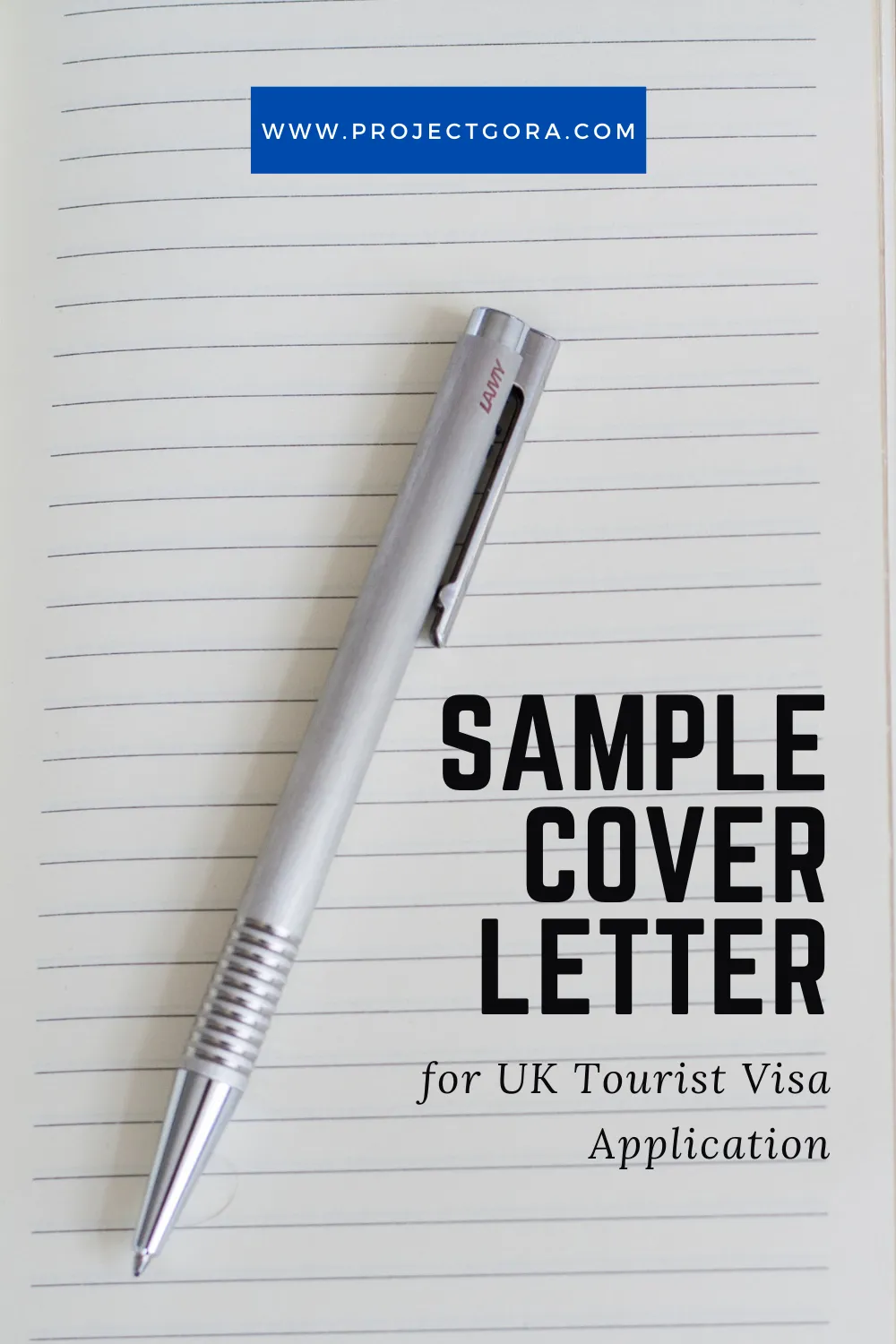
A compelling cover letter for a UK visa application is built on several essential components. Each section should be clear, concise, and directly relevant to your visa application. Ensure that you provide accurate information and support it with the appropriate documentation. Your cover letter should be well-organized and easy to read, making it simple for the visa officer to grasp the most critical details of your case. A poorly structured or confusing cover letter can negatively impact your application, so taking the time to plan and structure your letter is essential for making a strong case.
Applicant’s Personal Details
Begin by clearly stating your full name, date of birth, passport number, and nationality. This ensures the officer can immediately identify you and match the letter to your application. Include your current address and contact information (phone number and email address) so the UKVI can easily reach you if needed. It’s important to cross-reference these details with the information provided in your application form and passport to maintain consistency throughout your submission. Accurate personal information is the foundation of your cover letter, establishing your identity and making it easy for the authorities to verify your application details quickly and efficiently.
Purpose of Visit
Clearly state the exact reason for your visit to the UK. Be specific and provide as much detail as possible. For example, if you are visiting for tourism, specify the planned activities and attractions you intend to see. If you’re attending a conference or event, mention the name, dates, and location. For student visas, state your intended course of study, the educational institution, and the course start and end dates. Being precise demonstrates your genuine intentions and helps the visa officer understand why you need to enter the UK. Ensure the purpose stated in your cover letter matches the purpose declared in the visa application form and any supporting documents such as invitations or acceptance letters.
Travel Itinerary
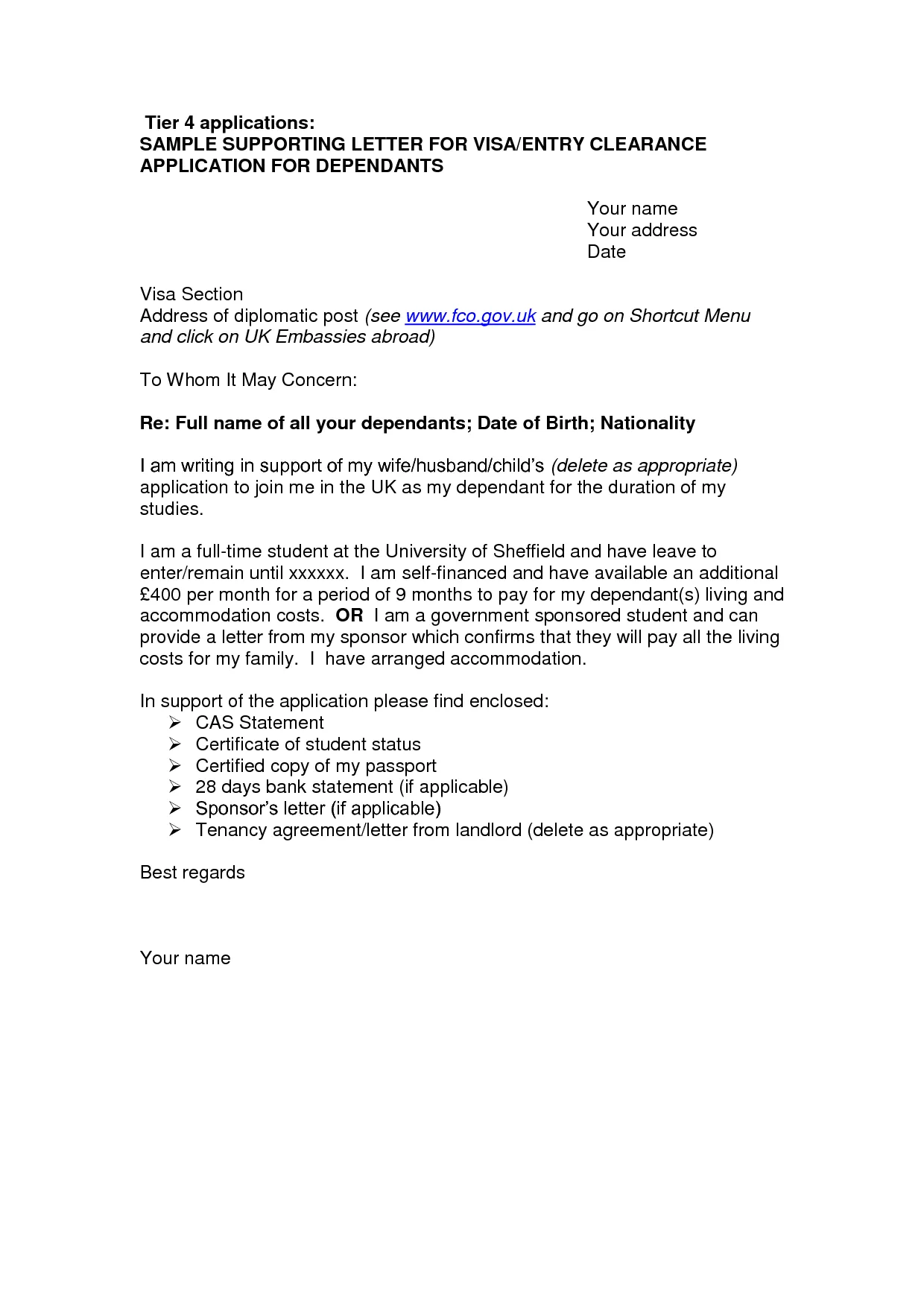
Provide a detailed travel itinerary, including the dates of your arrival and departure. Mention your flight details, if available, including flight numbers and arrival/departure airports. List the cities you plan to visit and the planned activities at each location. If you have any pre-booked accommodations, specify the hotel or address where you plan to stay. A well-defined itinerary demonstrates your planning and shows the visa officer that you are organized and have a clear understanding of your intended travel plans. This helps to prove that you have a legitimate reason to visit the UK and are not likely to overstay your visa.
Financial Support
Clearly state how you plan to fund your trip. If you are financially supporting yourself, provide details of your bank accounts, including the account name, account number, and the average balance over the past six months. Include copies of your bank statements as supporting documentation. If someone else is sponsoring your trip, provide a letter of sponsorship from that person. The sponsor’s letter should state their relationship to you, their willingness to support your trip financially, and details of their financial ability to do so, accompanied by their bank statements. Demonstrating that you or your sponsor have sufficient funds to cover your travel expenses is crucial to securing a UK visa. This demonstrates you can support yourself without relying on public funds in the UK.
Accommodation Details
Specify where you will be staying during your visit. If you have booked a hotel, provide the name, address, and booking confirmation details. If you are staying with friends or family, include their full name, address, and a letter of invitation. The invitation letter from your host should clearly state your relationship, confirm your visit dates, and confirm that they can accommodate you during your stay. Provide a copy of the host’s passport or ID, and proof of address (e.g., utility bill). Providing detailed accommodation information helps the visa officer understand your travel plans and verifies that you have a place to stay during your time in the UK.
Supporting Documents
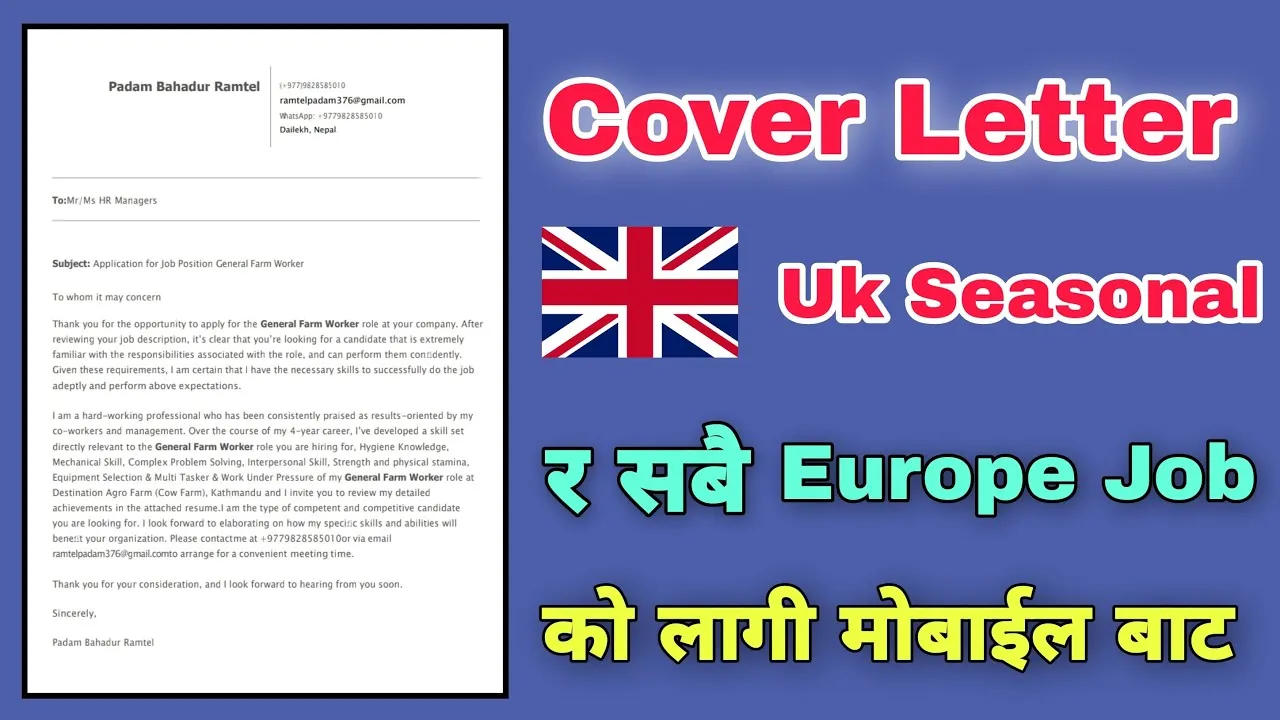
List all the documents you are including with your application. This list serves as a checklist and helps ensure that you have included everything needed. Make sure the list is clear and concise. For example, you can list your passport, visa application form, bank statements, travel itinerary, accommodation details, and any other relevant documents. This section can also include letters of invitation, employment letters, or educational certificates. Refer to any specific requirements for the type of visa you’re applying for and include all the necessary documentation. Organizing and providing a list of your supporting documents helps the visa officer process your application efficiently and increases the chances of a successful outcome.
Structuring Your Cover Letter for Maximum Impact
The structure of your cover letter is just as important as its content. A well-organized and easy-to-follow structure will make your case more persuasive. You want the visa officer to easily find the information they are looking for and understand your intentions. A letter that is clear and easy to read shows you’ve paid attention to detail, which is an important aspect of the application process. Think of the structure as a roadmap that guides the reader through your application.
Formatting and Tone
Your cover letter should be formatted professionally. Use a standard font like Times New Roman or Arial, with a font size of 11 or 12. Use single-spaced lines with a space between paragraphs. The tone should be formal but personal. Address the visa officer respectfully and use polite language. Avoid slang, jargon, and overly casual language. The tone should show genuine intent and the seriousness with which you are taking the application process. Make sure to sign your letter.
Clarity and Conciseness
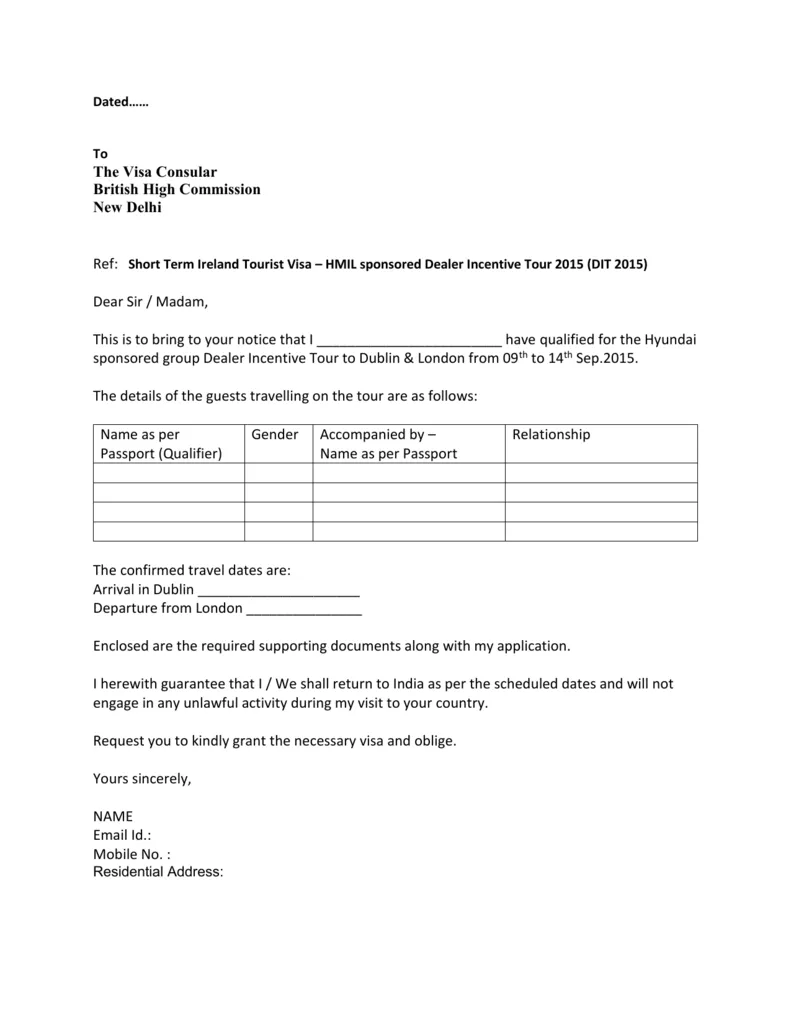
Keep your cover letter clear, concise, and to the point. Avoid unnecessary details or lengthy explanations. Each paragraph should convey a specific piece of information. Focus on the essentials and avoid rambling. Use simple, direct language and avoid complex sentence structures. The objective is to present all the key information quickly and effectively, making it easy for the visa officer to understand your purpose and intentions. Being concise makes a stronger impression than trying to overwhelm the reader with extensive details.
Proofreading and Editing
Proofreading and editing your cover letter is essential. Errors can undermine your credibility and suggest a lack of attention to detail. Before submitting your letter, carefully check for grammatical errors, spelling mistakes, and punctuation issues. Read the letter aloud to identify awkward phrasing or sentences that don’t flow smoothly. Ask a friend or family member to review your letter. Getting a second opinion helps ensure that your letter is error-free and easy to read. A well-edited cover letter demonstrates professionalism and helps you make a positive impression on the visa officer.
Common Mistakes to Avoid
Many applicants make common mistakes that can negatively impact their UK visa applications. Avoid these pitfalls to increase your chances of success. It is best to be aware of the common mistakes people make and prepare yourself so you can avoid these issues and submit a much more compelling application.
Generic Templates
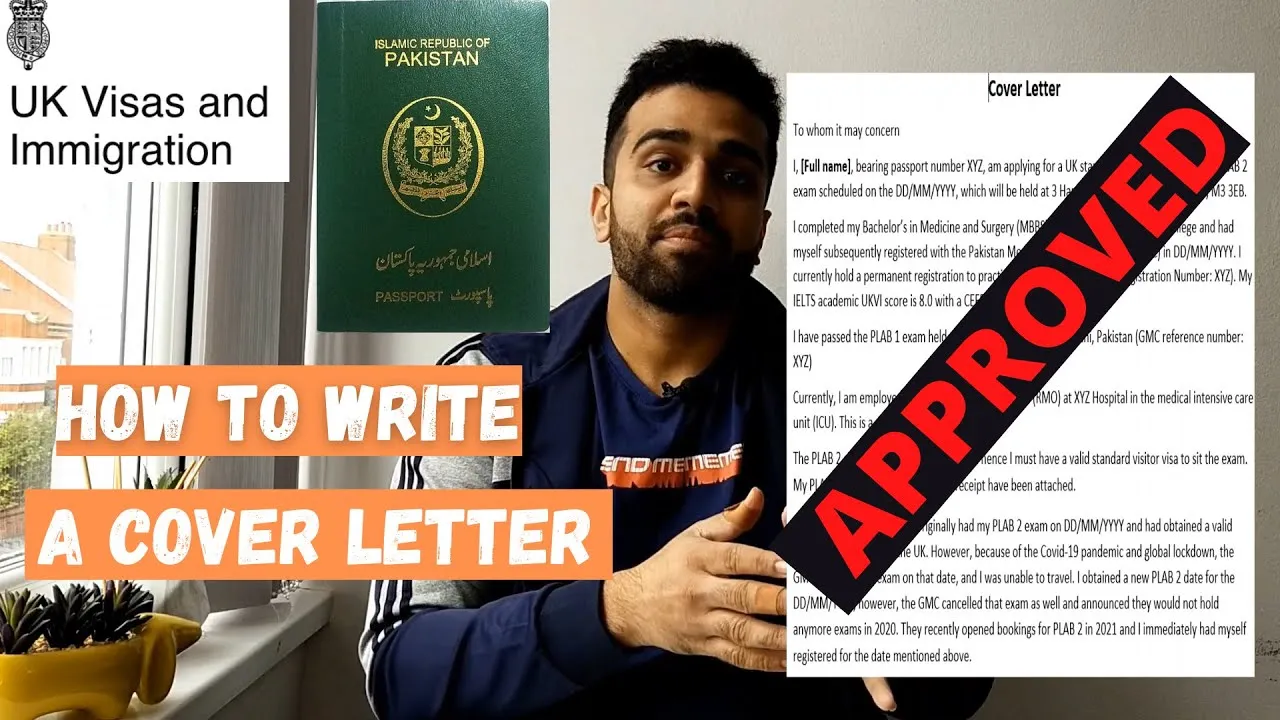
Avoid using generic cover letter templates that are easily found online. These templates often lack the personal touch and specific details needed to support your application. A generic letter is unlikely to impress the visa officer and could even suggest that you are not genuinely committed to the purpose of your visit. Instead, write a cover letter that is unique to your situation. Tailor the content to your specific circumstances and use your own words to convey your intentions and provide the necessary information.
Lack of Detail
Insufficient detail is another common mistake. Be sure to include as much relevant information as possible. Vague statements do not build trust with the visa officer. Provide specific dates, names, and locations when describing your travel plans, financial situation, or accommodation. Be detailed in your statements, making sure your cover letter answers any potential questions the visa officer might have. Providing all the necessary details shows that you are well-prepared and have nothing to hide.
Inconsistencies
Inconsistencies between your cover letter and supporting documents can raise red flags. Ensure that all information is consistent throughout your application. Verify that your dates, names, and financial details match what is stated in the application form, passport, bank statements, and other supporting documents. Any discrepancies, even minor ones, can lead to doubts about the accuracy of your information and could result in a visa refusal. Proofread your application carefully and compare your cover letter with all accompanying documents to ensure consistency.
Additional Tips for a Winning Cover Letter
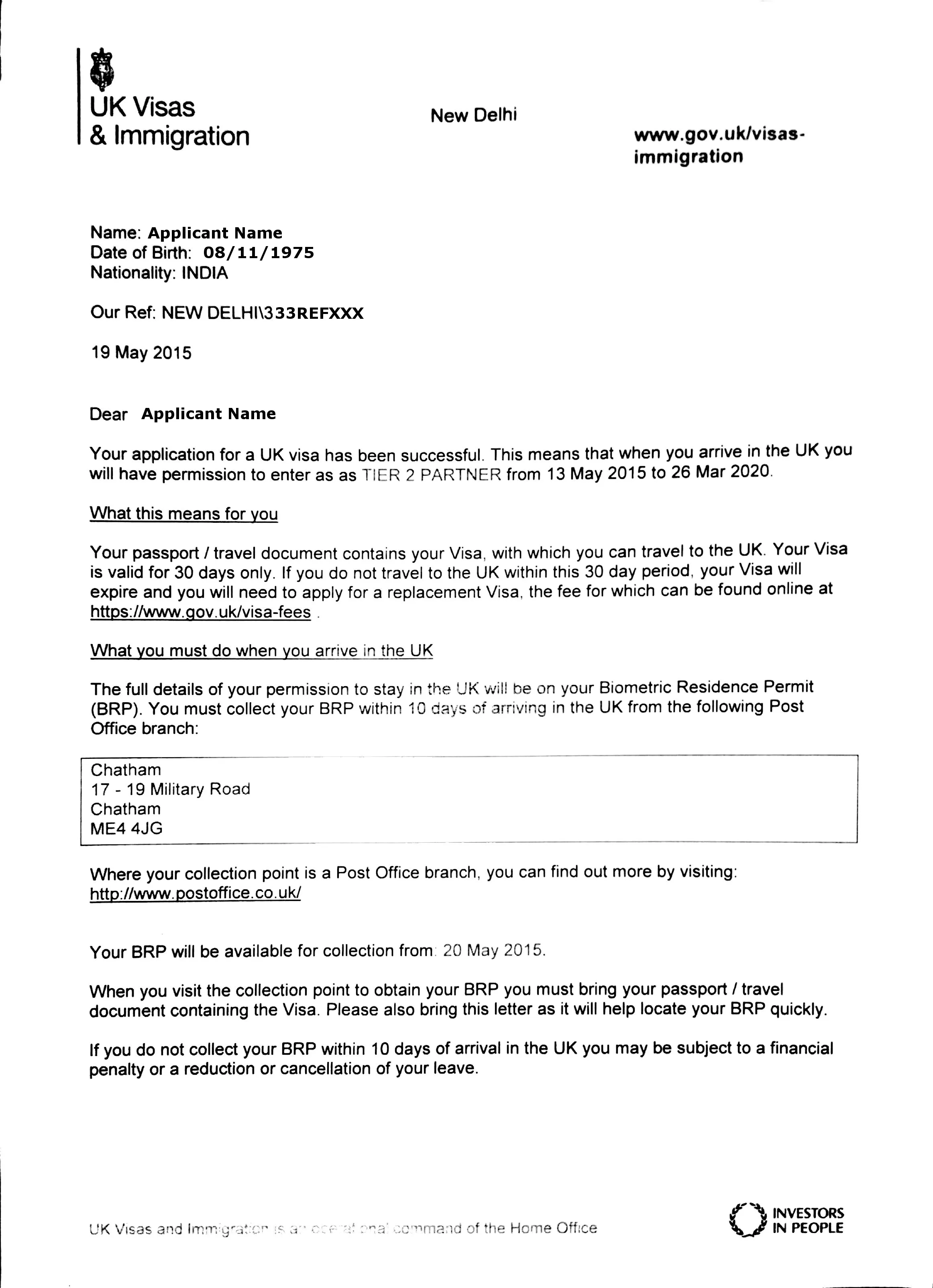
Here are some additional tips to increase the effectiveness of your cover letter. Following these suggestions can help you make a more convincing case to the UKVI. It’s always beneficial to improve your chances of a successful visa application by following all the necessary steps and making a compelling presentation.
Be Honest and Transparent. Always be truthful in your cover letter. Do not omit any information or provide false details. Honesty builds trust with the visa officer and increases your chances of success. Address any potential concerns proactively. If you have a complex situation, explain it openly and provide supporting evidence. Transparency demonstrates your willingness to comply with the UK’s immigration laws.
Keep a copy of your cover letter and all supporting documents for your records. This will be useful if you need to refer to them later. Provide a clear, concise and well-structured cover letter, and proofread it thoroughly before submission. Remember that a well-written cover letter, free of errors and inconsistencies, can play a pivotal role in your UK visa application. By following these guidelines, you can increase your chances of a successful outcome and embark on your journey to the UK with confidence.
